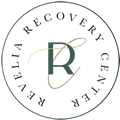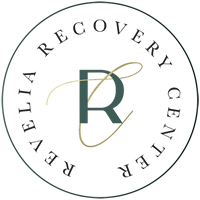Problematic alcohol consumption does not happen overnight. It often begins with small, almost invisible shifts in behaviour, physical health, and emotional wellbeing.
Recognising the early signs of a drinking problem can be the key to preventing long-term damage and reclaiming control over your life. Whether it’s subtle changes in habits or more apparent physical symptoms, ignoring these warnings could lead to serious consequences.
No matter where you are from, professional help such as Revelia Recovery Center in Tenerife is available to guide you through recovery.
100% CONFIDENTIAL
What is Alcohol Addiction? Definition and Stages of Alcohol Use Disorder
Alcohol addiction, medically referred to as Alcohol Use Disorder (AUD), is a chronic condition marked by the inability to control drinking despite negative consequences.
It progresses in stages —from casual or social drinking to physical and psychological dependence— often without individuals realising the severity until serious problems develop.
When Drinking Becomes a Problem
The shift from social drinking to alcohol misuse can be subtle. It often starts with drinking to manage emotions or stress, eventually evolving into a situation where alcohol feels necessary for daily functioning. Recognising when alcohol use escalates is crucial for early intervention.
Warning Signs of Alcohol Abuse: Behavioural and Physical Red Flags
Spotting the early warning signs of alcohol abuse can dramatically increase the chances of successful recovery.
Behavioural Signs of Alcohol Misuse
- Avoiding family and friends.
- Missing work, school, or important obligations.
- Loss of interest in hobbies and activities.
- Needing more alcohol to achieve the same effect (tolerance).
- Hiding drinking habits or being secretive.
- Becoming defensive when questioned about alcohol use.

Physical Signs of Problematic Drinking
- Frequent hangovers or morning drinking.
- Red or puffy face.
- Unexplained injuries or bruises.
- Persistent fatigue or low energy.
Noticing these physical indicators often points to deeper issues already forming beneath the surface.
Symptoms of Alcohol Dependency: How They Develop Over Time
The symptoms of alcohol dependency typically evolve gradually and may include:
- Intense cravings for alcohol.
- Loss of control over the amount consumed.
- Withdrawal symptoms like tremors, sweating, or nausea.
- Continued drinking despite medical, legal, or relational problems.
These markers signal that casual drinking has crossed into dangerous territory.
How to Recognise Alcohol Addiction Early
If you are wondering about how to spot early alcoholism in yourself or a loved one, check out these signs being vigilant about emotional and behavioural changes, such as:
- Increased irritability or aggression.
- Frequent mood swings.
- Memory blackouts or forgetfulness.
- Drinking alone or feeling guilt after drinking sessions.
- Making excuses to drink.
- Drinking at inappropriate times (such as in the morning or during work).
- Feeling regret or shame after drinking.
- Prioritising drinking over responsibilities.
If you recognise any of these signs, seeking help early can make a significant difference.
Alcohol Use Disorder Symptoms: A Closer Look
The Diagnostic and Statistical Manual of Mental Disorders (DSM-5) lists specific symptoms associated with Alcohol Use Disorder:
- A strong desire or urge to drink.
- Inability to reduce or stop drinking despite wanting to.
- Engaging in risky behaviour while intoxicated.
- Allowing drinking to interfere with personal or professional obligations.
Understanding these symptoms can guide individuals and families towards appropriate alcohol treatment and recovery.
Impact of Ignoring Early Signs

Health Risks
Unchecked alcohol dependency can lead to severe medical conditions, including:
- Liver disease and cirrhosis.
- Cardiovascular issues such as high blood pressure.
- Neurological impairment and cognitive decline.
Social and Professional Consequences
Neglecting early intervention often results in:
- Strained or broken relationships.
- Career setbacks or job loss.
- Declining overall quality of life.
How to Get Help for Alcohol Addiction
If you or someone you care about is noticing the early signs of alcohol use issues, Revelia Recovery Center offers professional, compassionate help in Tenerife. Our approach is personalised to meet the unique needs of each individual.
100% CONFIDENTIAL
FAQs about Early Signs of Alcohol Addiction
What are the first behavioural signs of alcoholism?
Early behavioural signs include mood swings, secretive behaviour, and neglect of responsibilities.
Can you reverse alcohol addiction if detected early?
Yes, early intervention greatly increases the chances of a full recovery.
How do I know if I’m developing alcohol dependency?
If you feel unable to control your drinking or experience withdrawal symptoms when you stop, you may be developing dependency.
Is there a difference between alcohol abuse and alcohol addiction?
Yes, alcohol abuse involves harmful patterns of drinking, whereas addiction includes a physical and psychological reliance on alcohol.
How does alcohol addiction affect mental health?
It can exacerbate anxiety, depression, and cognitive difficulties over time.
Where can I find confidential help for alcohol addiction in Tenerife?
You can reach out to Revelia Recovery Center for expert, discreet assistance tailored to your needs.
Is Revelia an religious Alcohol Recovery Center?
No, we are a non-religious rehab center in Spain. a At Revelia, we respect individual belief systems. Our non-religious recovery programmes offer a safe, inclusive space for healing.
How are designed the alcohol detox programs of Revelia?
We provide expert alcohol addiction treatment throughout the Canary Islands, blending medical detoxification, psychological therapy, and holistic wellness practices. Our alcohol detox programs are medically supervised and designed to prepare you physically and mentally for lasting recovery success.
Conclusion: Taking the First Step Toward Recovery
Recognising the early signs of problematic alcohol use is a critical first step towards healing. By addressing concerns early, you can prevent severe consequences and embark on a transformative journey toward a healthier, happier life.
If you are seeking expert, compassionate help in Tenerife, Canary Islands or anywhere across Spain, Revelia Recovery Center is ready to support you every step of the way.
Don’t Wait to Get Help
📍 Located in Tenerife, Canary Islands
📱 Call us to +34 634 84 71 77 or contact us by WhatsApp
Let’s walk this path together. Your new life starts now. Contact us! 100% confidential

Pablo Vallejo
Pablo Vallejo holds a degree in Forensic Sciences, Forensic and Penitentiary Psychology from the Universidad Autónoma de Madrid and a Master's Degree in Psychopharmacology and Drugs of Abuse from the Universidad Complutense de Madrid. His expertise spans clinical psychology, forensic sciences and psychopharmacology, allowing him to offer a comprehensive and evidence-based approach to addiction recovery.
Pablo has coordinated treatment programs that have successfully reduced substance use disorders. Experienced in the 12-step method and the Prochaska and DiClemente model, he integrates scientific research and ethical practices into his work, ensuring effective and personalized care.






